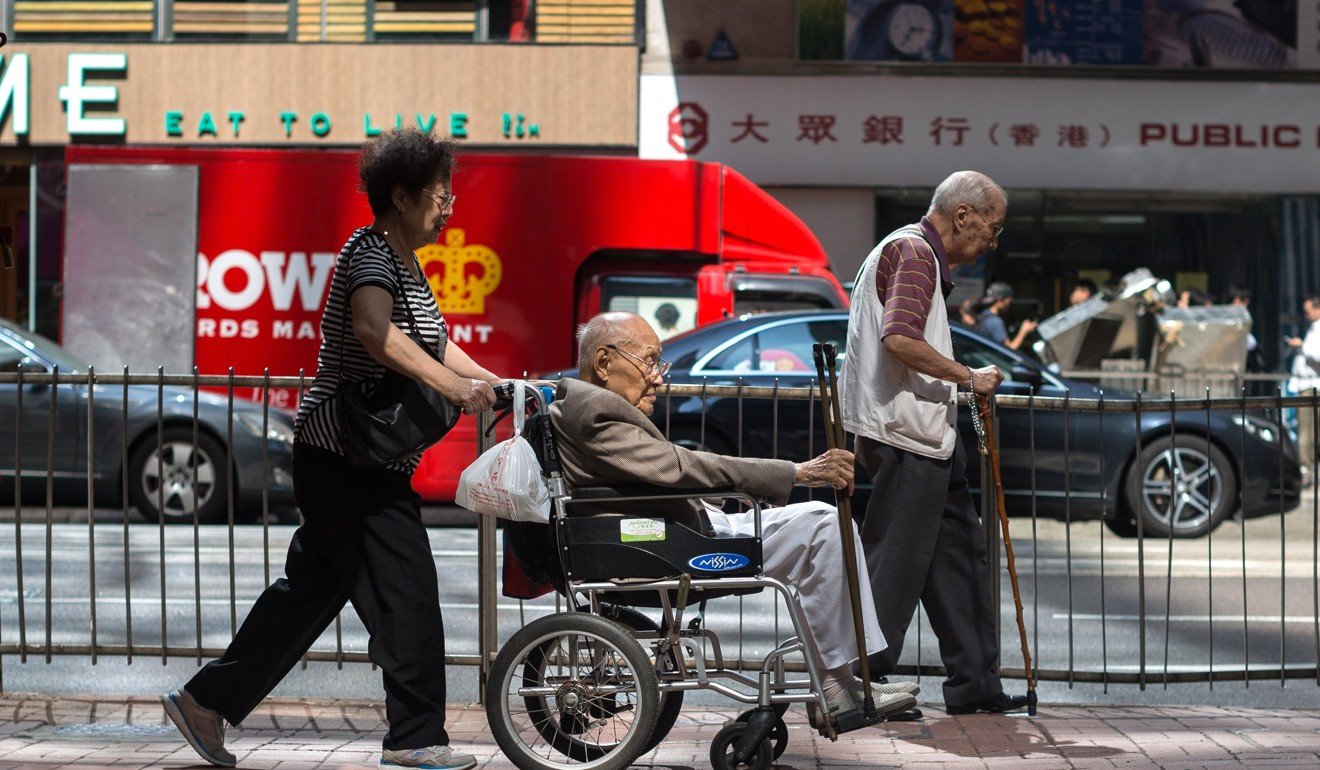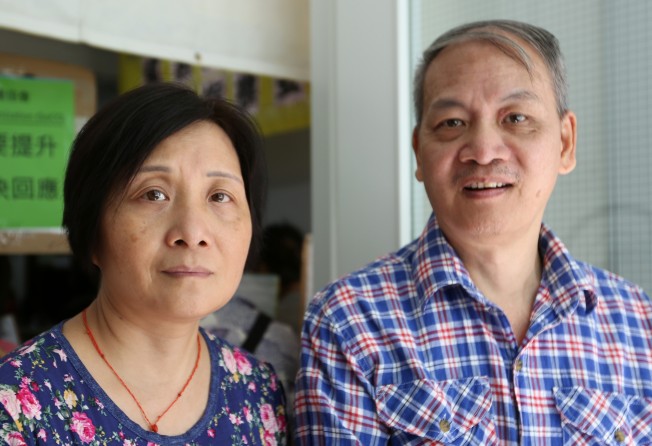
Will ‘zero waiting time’ make a difference for Hong Kong security guard who lost ability to speak after a stroke?
In her maiden policy address, Carrie Lam says the government is ready to allocate more resources to elderly care

When SY Chen, 62, suffered a stroke two years ago, his wife, who only gave her name as Wong, knew a tough road lay ahead as the couple had no one to help them at home.
She had been waiting a year for the help she desperately needs to care for her husband of 30 years.
“He would throw a tantrum when he wanted me to do something for him, banging the table or making some sound that I don’t understand,” Wong, 54, said.
On Wednesday, Chief Executive Carrie Lam Cheng Yuet-ngor outlined her “zero waiting time” vision in her policy address, saying the government was ready to allocate more resources to elderly care.
Those measures have the potential to benefit the lives of people like the Chen and Wong.
Chen, a security guard before his stroke, lost his ability to speak, part of his memory and some muscle control in his limbs – making everyday tasks difficult if not impossible.
With their two children grown and living away from home, Wong was forced to quit her job as a waitress to look after him at home, helping with everything from taking a shower to taking a stroll.
Her hope is to have Chen spend his days in a home for the elderly so she could “take a break” and possibly go back to work.
“I believe he prefers day care service because he still wants to meet me every day. He would feel more at ease,” she said. “If he could stay in a care centre, he could exercise and interact with other people there. That would be helpful for his recovery.”

However, the cost of private care centres is at least HK$5,000 per month – much more than they can afford.
The couple receives HK$10,500 of comprehensive social security assistance from the government. They spend about $4,000 in rent for a 100-square-foot subdivided flat in Sham Shui Po.
Chen has been on a waiting list for a spot at a subsidised care centre since October 2016 but was told the chances of getting one soon were slim.
“We were at a loss when we’re waiting. We didn’t know whether we would get a place eventually because so many other people were also waiting,” Wong said.
The couple also applied to the community care service voucher scheme which offers financial grants to elderly people who have impairments to purchase elderly service at private care centres.
The second phase of the scheme, launched in October 2016, has issued 5,000 vouchers. The policy address unveiled an additional 1,000 vouchers, bringing the total number of beneficiaries to 6,000.
“More vouchers to people means shorter waiting time, which is good,” Wong said.
After eight months, Chen was granted a community care service voucher last month which he planned to use on a spot at a private day care centre.
Wong said she there is nothing else she can do but hope for the best.
“I hope my husband’s health will keep improving. I’ll do whatever is best for him.”